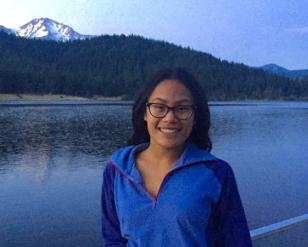“I identify as mixed and Black and it really depends on the context… Even though I know I don’t identify as white, my identity in other forms has shifted a lot over time,” says Courtney Bonoam as she explains how her identity has helped her become the person she is today.
The perspectives of multiracial individuals were discussed by Community Action Partnership of Sonoma County and moderated by Katie Watts-Whitaker. The panelists for this event included Courtney Bonoam, Micah Perrin, Marcus Clarke and Kerry Rego.
To start off the conversation, Watts-Whitaker asked the panelists to give an introduction about themselves and reveal a picture of their parents. “I’m the second child, with a red-headed dad and a Black woman… born and raised in Santa Rosa, Sonoma County…. there were so few mixed kids in Sonoma County, that we knew who each one of us was, so I knew about Marcus [Clarke] long before I actually met him, but we grew up together in the same basic neighborhoods,” said Rego. She then goes on to explain “the places that we have lived especially have helped shape my identity and it’s been actually fun being a part of this because it allows me to spend time thinking about and fleshing out these issues of identity and hearing other people’s experiences.”
After introductions, Watts-Whitaker then asked the panelists to talk about their perspective on why it’s important for people to know exactly who and what you are as a multiracial individual. Perrin responds saying that “people want to identify right away and want to know what they can say, what language they get to use around you, what they can get away with and even in some cases, what jokes they can use.” I couldn’t agree more with what Perrin said. I think identity plays a huge role in everyone’s life and I really resonate with Perrin’s experience when other people start questioning who you are as a person.
Even though I’m not a multiracial individual, I am a transracial adoptee. I was born in China and I have white parents. I grew up in a pretty white community, so I definitely felt like an outcast, since not many people looked like me. When I was little, I was very insecure about my identity. Kids at school would always ask why I looked different from my parents or make jokes about how every Asian is smart at math. The only response I could say was that “I was adopted” or “not every Asian knows everything.” As I grew up, I found people who were very similar to me, like other transracial adoptees, who are my best friends to this day. This has impacted my life because it has allowed me to feel more comfortable in my own skin, take pride in who I am as a person, and not feel like such an outcast in my community. I believe that by joining groups or clubs that are in or outside school and who have similar views as you, allows you as a person, to feel accepted and welcomed by the community.
Overall, this conversation was really eye opening. I think that it’s really important for outsiders who aren’t in multiracial families to understand these stories. Regardless of where you come from or the path you took to get where you are today, conversations like this one allow us to be more inclusive and find similarities as well.
To watch this conversation click here.


